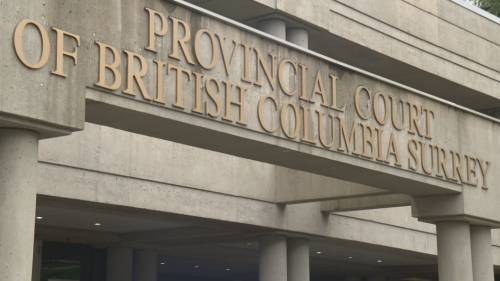In a landmark legal decision that has sent ripples through Canada’s judicial system, a Surrey man has been acquitted of sexual assault charges after successfully arguing he was in a state of extreme intoxication from consuming magic mushrooms. The controversial ruling has ignited intense debate among legal experts, victims’ advocates, and the public about the boundaries of criminal responsibility when substances are involved.
The defendant, who cannot be named due to publication restrictions, allegedly broke into a Surrey home in 2021 and sexually assaulted a woman he had never met before. During the trial, court heard that prior to the incident, he had consumed a substantial amount of psilocybin mushrooms at a party—a hallucinogenic substance known to significantly alter perception and cognition.
“This case represents a rare but not unprecedented application of the extreme intoxication defense,” said criminal defense attorney Melissa Horvath, who was not involved in the case. “The Supreme Court of Canada’s 2022 decision in R. v. Brown created the framework that made this outcome possible.”
The court accepted expert testimony that the defendant had experienced what’s medically termed as “pathological intoxication”—a condition where the individual has no control over their actions and lacks the ability to form criminal intent. Medical experts testified that the mushrooms induced a temporary psychosis during which the defendant had no awareness of his actions.
Crown prosecutors argued vigorously against the defense, pointing to what they described as selective behaviors that suggested some level of awareness. However, Justice William Clarke ultimately determined that the evidence supported the claim that the defendant was in a state where he could not form the necessary mental intent required for criminal conviction.
This ruling follows the Supreme Court of Canada’s 2022 decision that struck down a section of the Criminal Code that had prevented the use of extreme intoxication as a defense in certain violent crimes. The high court ruled that preventing such a defense violated the Charter of Rights and Freedoms by potentially criminalizing individuals who were not acting voluntarily.
The case has prompted renewed calls for legislative reform. Victims’ rights groups have expressed profound concern about the message this sends to survivors of sexual assault. Sarah Mitchell from the Canadian Association for Victims Support stated: “While we respect the court’s decision based on current law, this creates a troubling precedent that potentially prioritizes the intoxication of perpetrators over the trauma of victims.”
Legal experts note that successful extreme intoxication defenses remain exceedingly rare in Canadian courts, requiring substantial scientific evidence and expert testimony to establish. “This is not a get-out-of-jail-free card for anyone who commits crimes while intoxicated,” explained Dr. Julian Roberts, a forensic psychiatrist. “The threshold is extraordinarily high, requiring proof that the person was in a state akin to automatism—essentially acting without conscious control.”
The federal government has indicated it is reviewing the case as part of ongoing considerations about potential amendments to the Criminal Code that would address the extreme intoxication defense while respecting Charter rights.
As Canadian society grapples with this complex intersection of criminal justice, substance use, and victims’ rights, the question remains: how do we balance individual rights against public safety when substances fundamentally alter someone’s mental state? The answers will likely shape Canadian law for decades to come.











